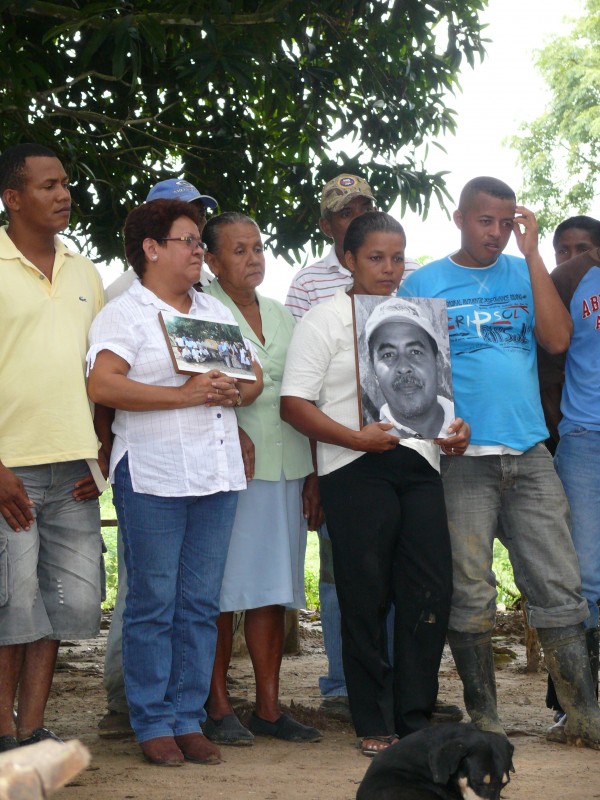
Julia Torres holds a photo of her slain husband, Rogelio Martínez. Martínez was assassinated after helping lead the return of 53 farming families to land they had been pushed off of by paramilitary forces in San Onofre, Colombia.
The organization Global Witness recently released a briefing entitled “A Hidden Crisis? Increase in killings as tensions rise over land and forests.”
The briefing shows that 711 activists defending rights related to land and forests have been assassinated in the last decade (2002-2011), word-wide. The report shows that Latin America is home to three of the four countries with the highest rates of assassination for activists defending land and forests: Brazil, Colombia, and Peru. The briefing reports that the number of killings in Brazil stands at 365, with 123 murders in Peru, and 70 in Colombia.
Global Witness indicates that the total number of assassinations reported is likely a gross underestimate of actual deaths. Lack of systematic monitoring of such killings as well as threats and intimidation that stand in the way of effective monitoring are just two reasons why underreporting may exist.
Global Witness notes that 2011, followed by 2010, saw the greatest number of activists killed. In Colombia, research by other organizations, such as the U.S. Office on Colombia, reflect the same trend showing that between August 2010 and October 2011 20 ¨land leaders¨ were assassinated.
The briefing notes that globally, activists killed were most commonly protesting or launching grievances against mining operations, agribusinesses, logging operations, tree plantations, hydro-power dams, urban development, and poaching.
In Colombia, the murder of ¨land leaders¨ has come into focus recently as the nation begins to implement what is referred to as the Victims Law. The law includes legislation aimed at returning rural lands to thousands of internally displaced Colombians. Evidence shows that by seeking land restitution, small-scale farmers and internally displaced people face great risks of threats, violence, and assassination. National and international organizations have called for greater protection measures to be implemented and insist that land restitution will not succeed if protection for land leaders is not prioritized.
¨A Hidden Crisis?¨ offers some broad, yet important recommendations for what governments can do to protect land and forest activists. In the case of Colombia, Global Witness´ recommendations can be augmented by recommendations made in the report ¨Against All Odds: The deadly struggle of land rights leaders in Colombia¨ by the U.S. Office on Colombia.
(Photo Credit: Felipe Bustamante, Lutheran World Relief)